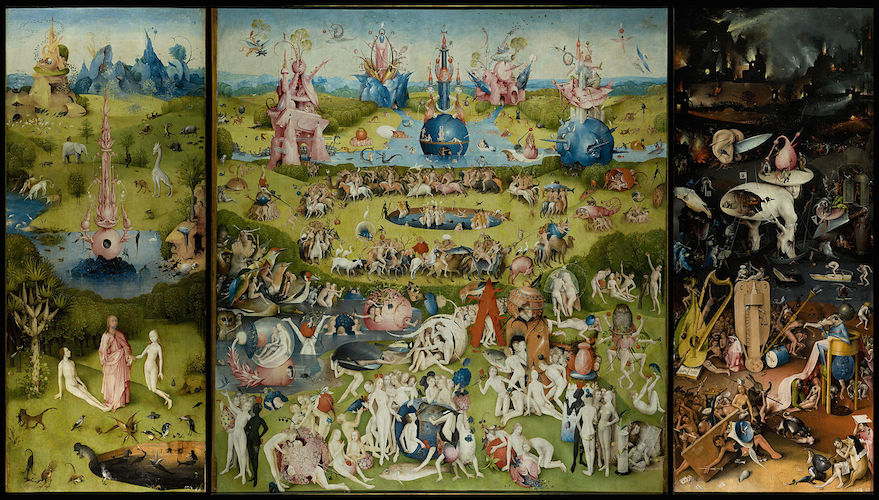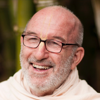I am often asked how I came to Kṛṣṇa consciousness. I could start with June 7th of 1970 [1] when, by chance, I got a card advertising the Sunday Feast from the devotees chanting on Sunset Boulevard and then visited the temple on Watseka Avenue in Los Angeles. But I don’t think my journey really began then, so I prefer to answer by telling the history of my soul.
As far as I can trace it, my history begins in ignorance, the false conception that the highest happiness is only what I want. I had lived in that selfish way life after life since time immemorial. Trying to be the controller and enjoyer I traveled from universe to universe, from species of life to species of life, but it didn’t work. I was miserable, for no matter how much I tried to enjoy, even at the best of times, I was disconnecting myself from my soul, which is consciousness that reaches its fruition only in selflessness and devotion. It took so long, but then one day, I became hopeless with my self-centered existence. I was thus thrown in utter despair, and although my soul was covered by ignorance like a cloud that covers the sun, the depths of my pain suddenly caused a rudimentary spiritual thought to enter my consciousness: I yearn for truth, to be guided by something higher than only what I want. God had been watching, waiting for this moment. Seeing this slight opening in my mind, this sliver of humility receptive to mercy, He joyfully decided, “This poor soul is ready for sādhu-saṅga.” I soon again died.
Of all places I was born in Brooklyn, but little did I realize the depth of my fortune. America was to be the place Kṛṣṇa would soon send Śrīla Prabhupāda to open the hearts of countless souls to pure devotion through the inauguration the saṅkīrtana movement.
Yes, by inconceivable mercy I was in New York where the emissary of Śrī Caitanya would soon revive His mission, but still some more work was needed to open my soul in humility and dependence. I remained totally covered for almost another 20 years living out the special karma of happiness, and mostly distress, that God had decided I needed to make me receptive enough for the mercy of His devotee. Yes, there were fleeting moments of humility and feelings of the soul. Although I hated after-school Hebrew School, I was at times deeply moved by the prayers of devotion, and though mired in a culture of materialism, I sometimes, even at a very young age, thought of the futility of a life that ended in death. But mostly my life was a last fleeting attempt to control and enjoy the world while enduring the tortuous competition for recognition and sense gratification of New York City Public Schools and the wanton life of college, something I never want to be born again to experience.
Searching for relief and happiness I set off with four friends after the second year of college for California, a pilgrimage with ill placed motives, but fortunate lessons. We were sitting on a bench in Yosemite National Park as the streams from the beautiful waterfall crossed under our feet. And somehow – I don’t know how – we began chanting the Hare Kṛṣṇa mantra in the same tune as from the Broadway rock musical Hair. [2] I clearly remember feeling my soul opening with devotion and happiness. God works in mysterious ways.
Soon we all left to visit my college roommate Eric Mausert [3], who then lived in Hollywood, and shortly after that we were invited to that Sunday love feast where the full-blown force of the kīrtan entered our hearts. It was an overwhelming spiritual experience, but especially the prasādam was transcendent (or indescribably) delicious.
The next day we left down Highway 1 for San Francisco and were inspired to do kīrtan the whole way. We soon found ourselves sleeping in our station wagon in the parking lot of Kezar Stadium in San Francisco which unknowingly faced the back of the storefront of the city’s only Hare Kṛṣṇa center. We soon met the great saint Jayānanda Prabhu, and danced in the streets of Haight Ashbury with Madhudviṣa, the Emperor of Kīrtan [4] and daily had the most out of this world delectable prasādam cooked by Gaurahari. My faith that the highest happiness rested in kṛṣṇa-bhakti was gradually being solidified, but still attachments poised a painful obstacle to my full commitment.
Upon returning home we quickly went to visit the temple at 61 Second Avenue. The devotees had just moved and we were directed to Henry Street in Brooklyn where we discovered the oasis of the Rādhā-Govinda Temple where a veritable all-star line-up of young, talented, and dynamic souls resided. I religiously attended the Sunday feast when not away at college. I heard the enlightening talks of Jayādvaita and Jadurāṇī, the kīrtans of Agnideva and Jayā Śacīnandana, and the more than wonderful feasts cooked by Maṅgalananda.
That summer I even skipped out of work and hitched-hiked to JFK airport to greet Śrīla Prabhupāda on arrival. I witnessed just as he was coming out of the plane his hand gently raised to give blessings to the gathering of young spiritual aspirants gathered to greet him. Still my time had not yet fully arrived.
Three years later, while visiting the temple in Dallas, I received two rasagulās directly from the hand of His Divine Grace. The moment I bit into one all misgivings were mystically destroyed. Then and there I decided to give my life fully to his service.
And that’s the real history of my soul.
[1] Approximately.
[2] Hair was a successful Broadway musical that ran for more than five years about the hippie era that included a song where the hippies chanted Hare Kṛṣṇa.
[3] To be initiated as Akṣobhya dāsa, a wonderfully and learned devotee, who passed away while preaching Kṛṣṇa consciousness.
[4] When I first joined the movement, I remember Madhudviṣa being referred to as the “Emperor of Kīrtan”.

